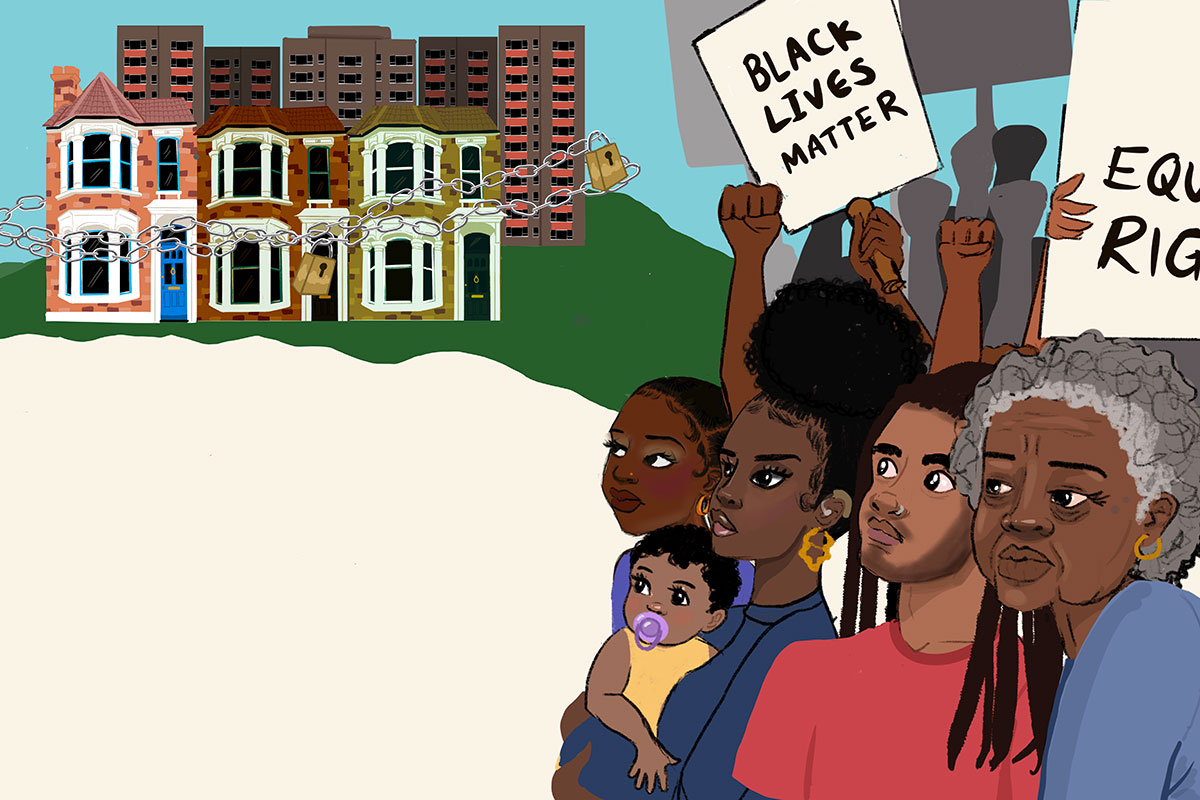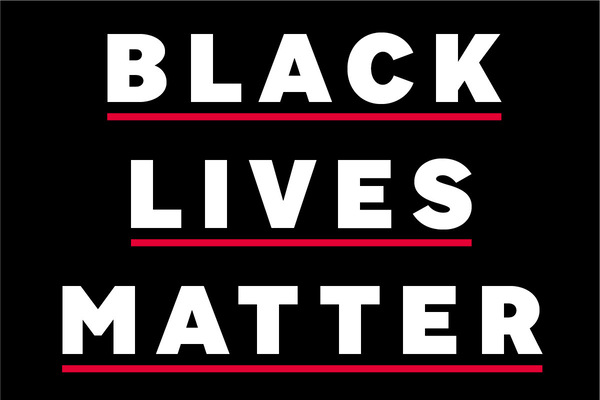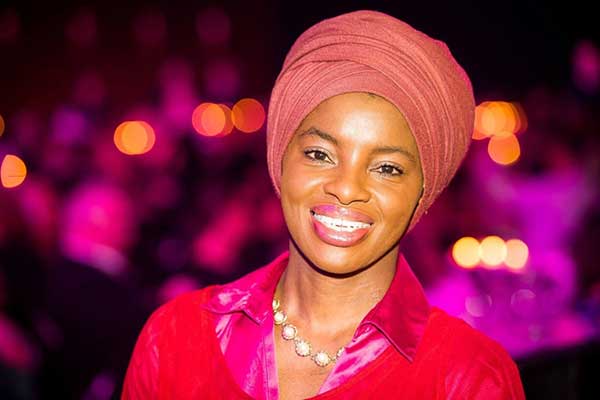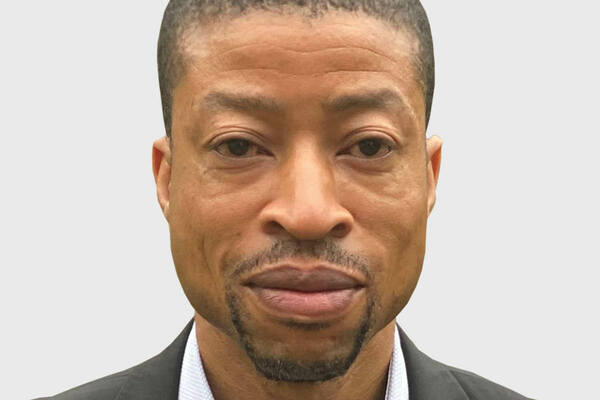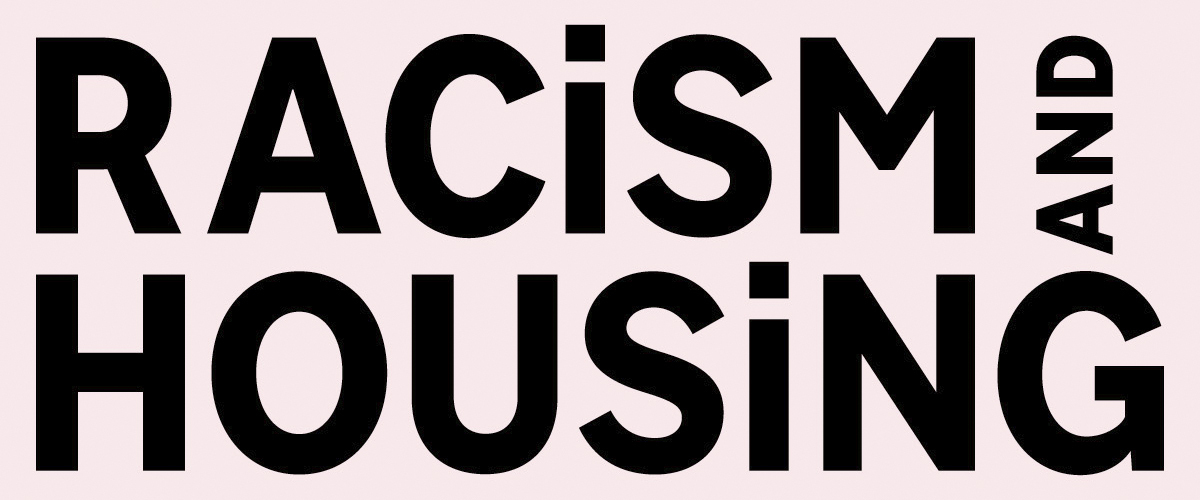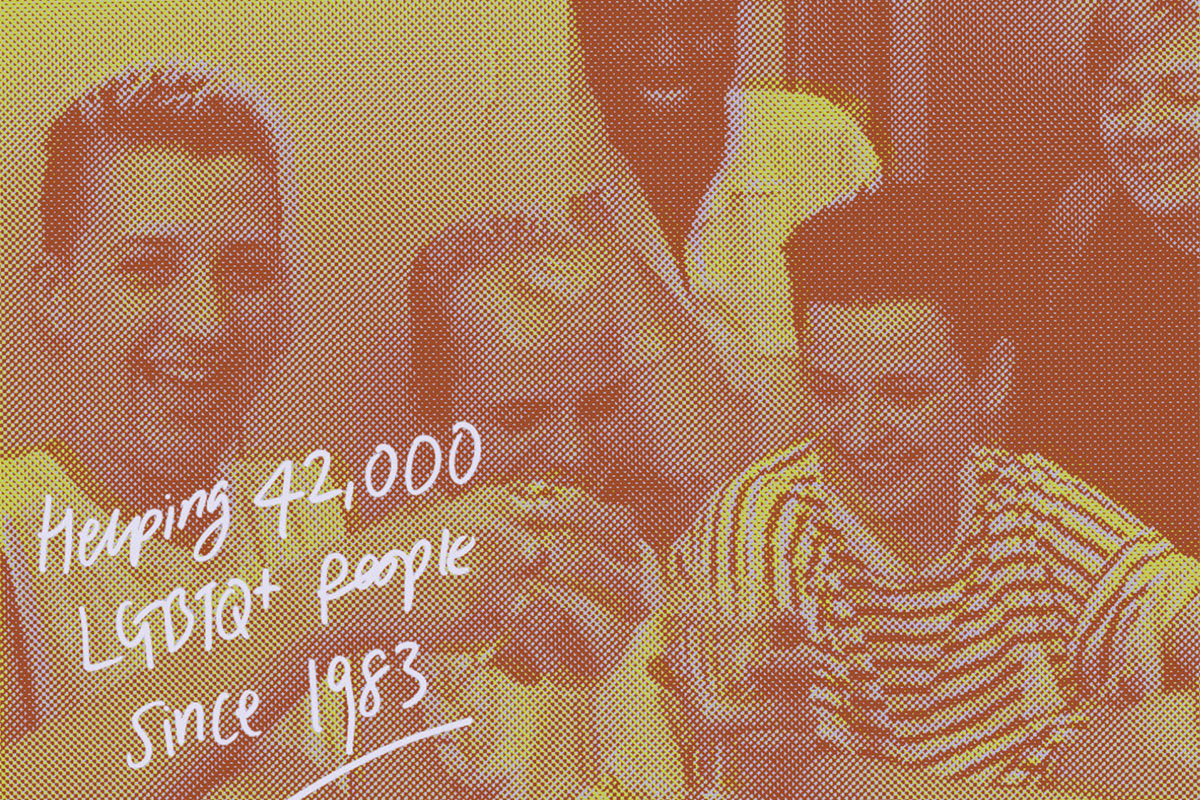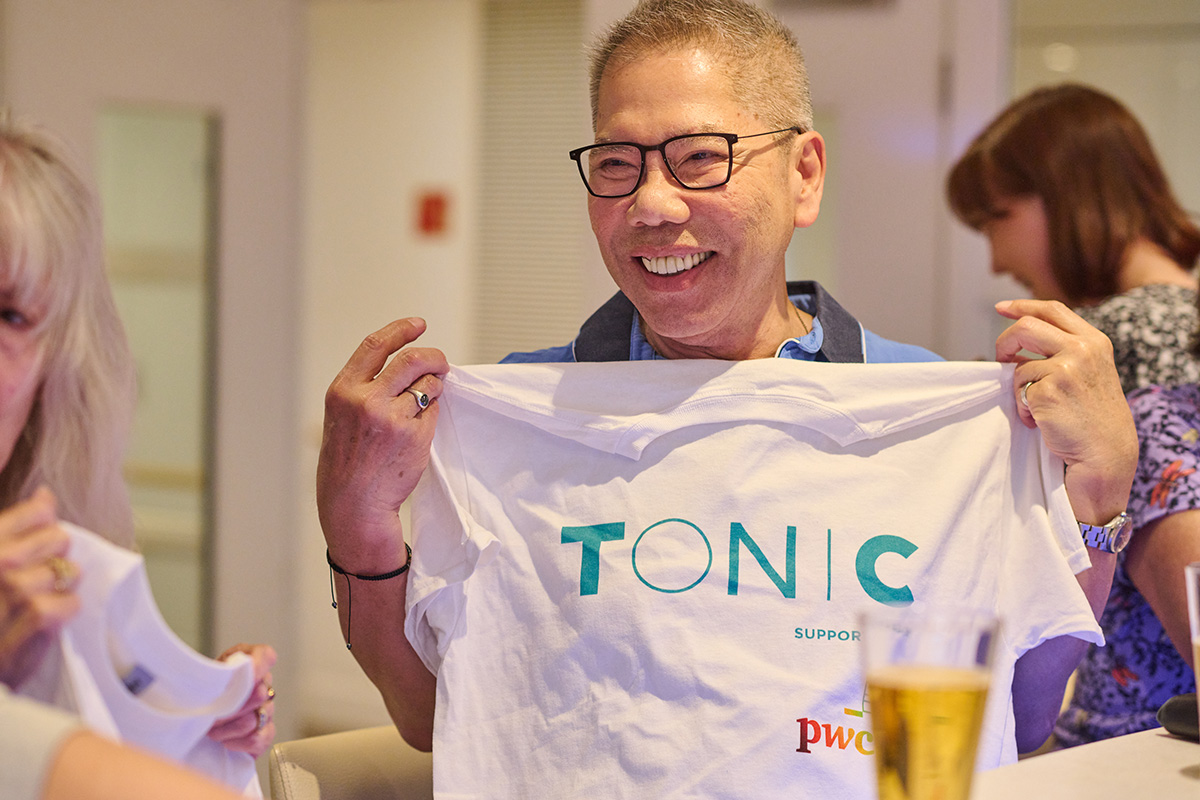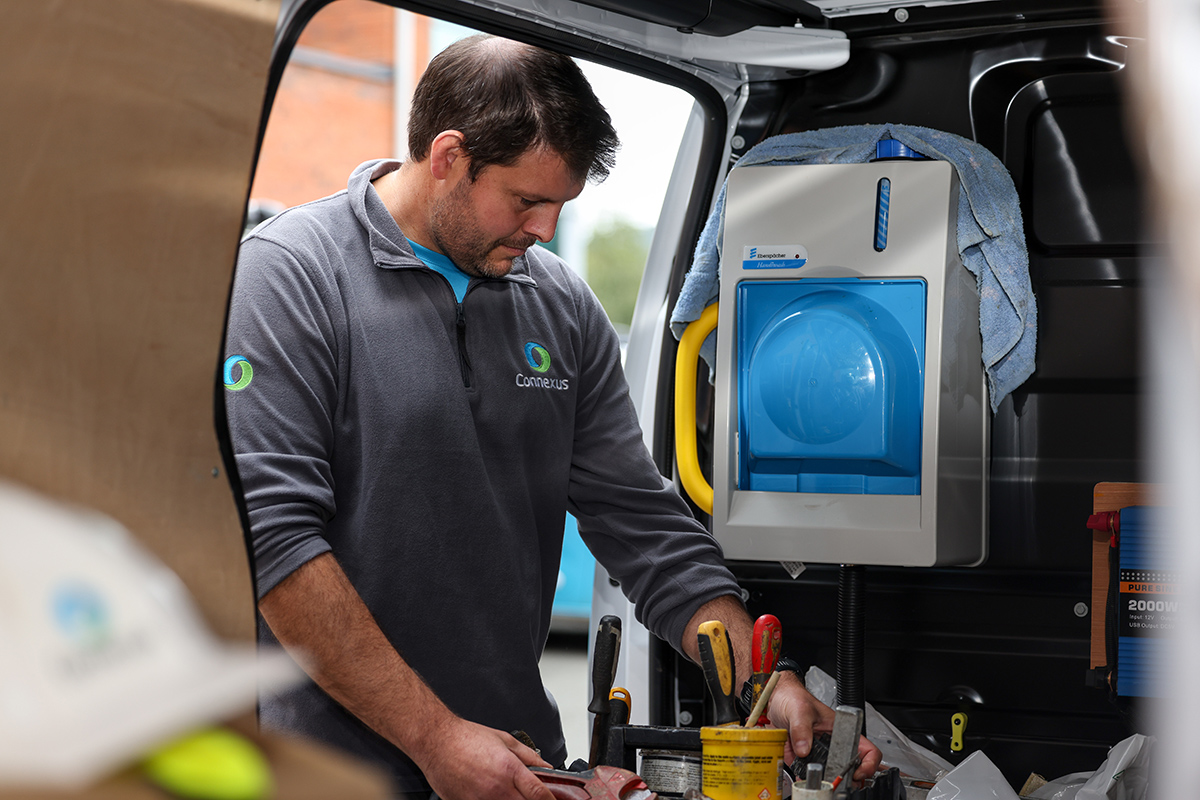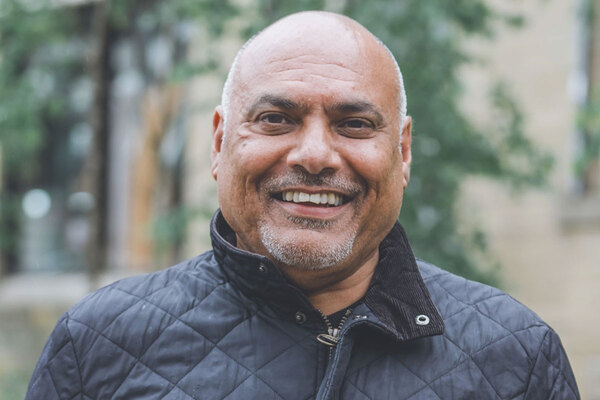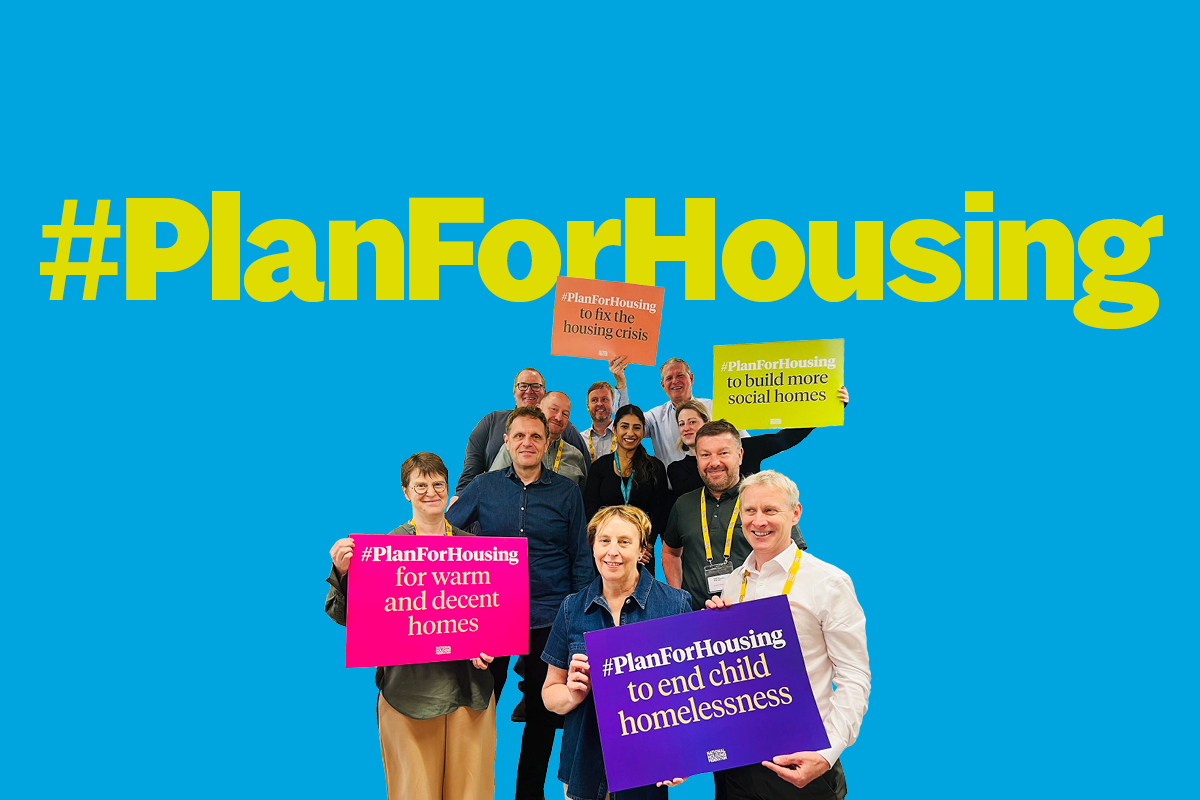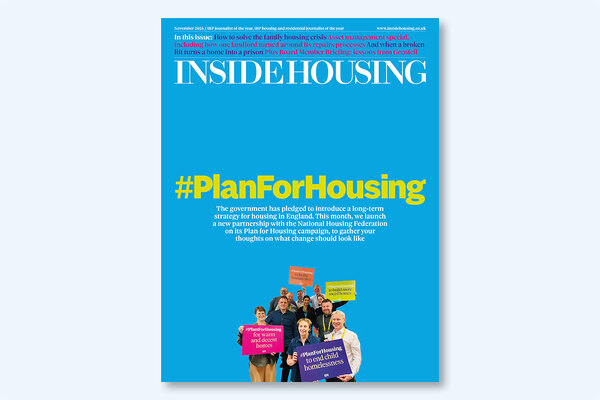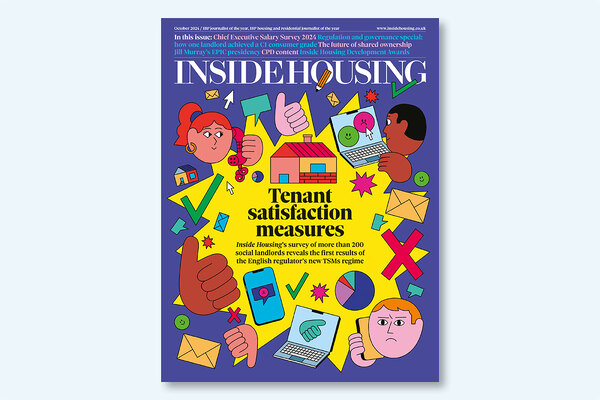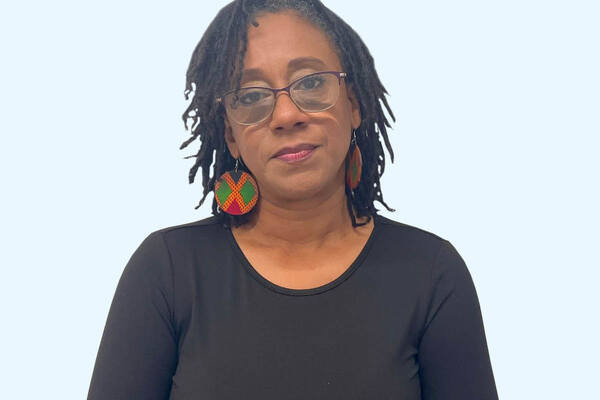Whatever happened to Black Lives Matter?

Two-and-a-half years since the Inside Housing Race and Housing Editorial Panel was launched, members of the panel came together for a candid discussion about how the housing sector is doing on grappling with race, and the cost of inaction on a personal level and for tenants. Jess McCabe reports. Illustration by Rahana Dariah
After George Floyd’s murder in the US in 2020, the UK housing sector had its own reckoning with racism. Many social landlords made commitments to fight racism, and promised a range of specific actions, from publishing data on the ethnicity pay gap to changing recruitment.
Inside Housing set up an editorial panel of Black, Asian and minority ethnic people working in housing, to advise and shape our coverage. Many of the stories we have published on racism in the past couple of years – how it affects tenants, housing staff and organisations – have come from ideas provided by that panel.
Recently, Inside Housing brought some members of the panel together for a broad discussion on how the sector is doing on addressing racism and implementing the idea – or ideal – of being anti-racist.
Pulse of the sector
That question, it turns out, is hard to answer, because the data doesn’t exist.
“I think change has to be evidenced by a change in the data. Firstly, you’ve got to be collecting it and, secondly, you’ve got to have some targets that mean you actually get there in the end. And I don’t see any of that at the moment,” sums up Cym D’Souza, chief executive of Arawak Walton Housing Association and chair of BME National.
The sector has started to gather some data on a voluntary basis. The National Housing Federation’s data tool for English housing associations provides some information, and Inside Housing has also published UK-wide data on representation in top jobs.
Both these surveys reveal under-representation of Black, Asian and minority ethnic people at executive and board level, as well as under-representation in terms of gender, sexuality, disability and other protected characteristics.
Other data is lacking. Measures of tenant satisfaction broken down by ethnicity and other protected characteristics could provide important insights on disparities. Data on the condition of homes is also not broken down by the ethnicity of tenants, although national datasets, such as the English Housing Survey, suggest that ethnic minority households across the country are likely to live in worse conditions and experience more overcrowding.
Research also uncovered evidence of links between Black and minority ethnic communities being more likely to live in poor housing conditions and more likely to be at risk of COVID-19.
Anecdotally, many of the disrepair scandals in social housing that have generated national news coverage have involved Black and minority ethnic tenants.
“It is so very difficult to say we’ve made progress. I am still waiting for the housing association that will say, ‘We have looked at our data’”
“When we first started talking about Black Lives Matter and the George Floyd murder, there was a lot of discussion about how we lock this into organisation-wide [key performance indicators]. How do we measure this? How do we make sure it’s something that, when we come back to it in two to three years’ time, we’ve got a way of actually saying, ‘This is how far we’ve come.’
“And those discussions went absolutely nowhere,” says Adunni Adams, head of development delivery at Catalyst Housing.
“It’s so very difficult to say we’ve made progress; I don’t even know what the measures of success are any more,” says Olu Olanrewaju, director at Altair, the consultancy, and chair of Leadership 2025, a charity that aims to make housing’s leadership more diverse.
“I’m still waiting for the housing association that will say, ‘We’ve looked at our data, we’ve looked at our worst-condition properties [in terms of ethnicity and other protected characteristics of residents], this is what our findings are and this is what we’re going to do about it.’ That, to me, is what I see as progress, when organisations are culturally curious about this.”
“I think that’s the leading indicator for me, when there is some transparency around what the actual impact is, of services to our tenants and to our customers,” Ms Adams adds.
If housing bodies aren’t gathering this information, is regulation the answer?
“Most of the major changes that have happened in the sector have been foisted upon [it]. It has either been [regulation-driven or legislation-driven]. It is always an external stimulus,” Mr Olanrewaju says.
“The reason they were having this conversation about Black Lives Matter is because an event happened in the United States that is getting a number of people in the housing sector to at least make claims or statements of intention.
“The question is, ‘Why did we have to wait?’” he adds.
Ms D’Souza says: “It has to be regulation, with teeth.”
We might not have data, but how do panel members feel the sector is doing?
“I think we’ve still got a long way to go,” says Jahanara Rajkoomar, director of community investment at Metropolitan Thames Valley (MTVH). “I don’t think this is about MTVH. I think if others were being 100% honest, they would be saying similar things.”
Dilip Kavi, chief executive of PA Housing, an organisation with a good representation of Black, Asian and minority ethnic people, says: “Even in my position at PA, there are still various things I haven’t conquered.”
Personal cost of the fight
Members of the panel talk about the personal cost of racism in their careers, and the cost of trying to address these issues in their organisations and the sector.
“I try to be authentic in all my dealings. And sometimes I find myself not being my authentic self,” says Ms Rajkoomar.
Lorri Holding, a strategic housing consultant and a board member at Alpha Living, adds: “It’s exhausting to always feel as though you have to be the cheerleader, when really what you want is [for] other people to step up and do the cheerleading or the raising of consciousness. So yeah, I’m tired.”
Mr Olanrewaju says: “People say to me, ‘You’ve been in the housing sector, you’ve been successful.’ I say, ‘No, I’ve survived it.’ I know a lot of friends and colleagues who have exited the sector, they’re no longer around.
“I’m not trying to be negative, or not inspire the young people coming into the sector, but I’m a survivor of the housing sector, I’m not a success of it, because I decided to create a new space for myself in the international field,” says Mr Olanrewaju, who advises housing associations internationally for Altair, after a career that included senior, executive and director roles in large organisations such as L&Q and a stint as chief executive of United Housing Association in Bristol.
Shahi Islam, assistant director of affordable housing grants at Homes England, says: “As we [people of colour] progress through our careers, we’re trying to balance our own ambitions and needs, for our family and for ourselves.
“I’m not trying to be negative, or not inspire the young people coming into the sector, but I’m a survivor of the housing sector, I’m not a success of it”
“But [it is very stressful to then have] to make sure that people behind you also have the same opportunities, to constantly be on point or aware of what your organisation is doing around equality, diversity and inclusion, because nobody else is doing it.”
An example of this would be being the only person to challenge the composition of an all-white panel at an event.
Mr Islam says he was the only minority ethnic person in attendance at a recent meeting of 20 senior people.
“I do feel a bit alone in those meetings,” he reflects.
“Quite honestly, I can cry on the basis of what Shahi just said,” says Mr Kavi, “Because it took me back 25 years, to when I started as a regulator in the Housing Corporation. I thought, for God’s sake, after 25 years,
I [thought] I would never, ever hear this [again].”
Professionalisation
The discussion keeps coming back to the culture of the housing sector, and what it means for it to become more “professionalised”. In practice, this has resulted in more people from outside the sector coming into top jobs and board roles.
“We can lose sight [of the fact] that, in the housing association sector or even land sector, board members should also have quite strong competency in housing and also in affordable housing,” says Mr Islam.
There is a general feeling that this could change things for the better.
Ms Adams says: “I’m actively trying to readjust my definition of what ‘professional’ is in the context of our sector. For me, a professional is somebody who has experience as a tenant, of being one of our customers for many years, and therefore can give us some pretty good insight into our services.
“A professional is somebody who spent their entire career in the sector.
“Unprofessional is somebody who has arrived in the sector because they’d like to fill a gap in their CV, because they’ve spent all their time in the private sector.
“Where are our white leaders at this moment in time? Who is going to take up the mantle?”
“Unprofessional for me is somebody who gets onto a board because they’ve spent X amount of time at certain private businesses, but can’t really demonstrate why they have an interest in being a senior leader making pivotal decisions for a housing association,” Ms Adams explains.
There’s a chance here for organisations and individuals in housing to take a more proactive stance and reinvent their ideas of who is suitable to take on a job or procure a service.
“One of the key things we need to do is to accept some risk,” says Mr Kavi. “For example, a smaller [Black and minority ethnic] contractor will not have all the sophisticated policies a large contractor will have, [although those policies may] turn out to be tick box. So we have got to just apply some discretion to say, ‘OK, we need to give somebody a chance.’”
Agents of change
How can things change? Regulation is one option, but the other is for white people in the sector to start stepping up.
“The majority of the people sitting in the audience seats were minority ethnic colleagues,” Ms Rajkoomar says of a recent Black History Month event.
There is definitely room for white people working in housing to attend these events and speak up if they notice that, for example, only white people have been put forward to speak at a conference.
Ms D’Souza says some of the greatest change-makers in the sector in the past were white, such as David Edmonds, who played a significant role in the 1980s. As chief executive of the Housing Corporation, he used regulatory powers to get housing associations to act on racism.
“Where are our white leaders at this moment in time? Who is going to take up the mantle?” Ms D’Souza asks.
Overall, the panel agrees that more action is needed, in any form.
“You’ve done quite well in raising awareness through various articles,” says Mr Kavi. “But I think the next generation will be looking at some action as to what we have managed to achieve.”
Racism and Housing series
Inside Housing’s Racism and Housing series aims to investigate how race inequality and racism interact with and impact on housing – for tenants, for staff working in housing, and for organisations. It has been launched a year since George Floyd’s murder prompted a huge global wave of Black Lives Matter activism.
We will be publishing monthly investigations that look at racism, race and housing, both in terms of what is going wrong, and what actions that sector is taking to address this.
If you have an idea for a story relating to this campaign, please contact deputy editor (features) Jess McCabe, at jess.mccabe@insidehousing.co.uk.
The stories published so far include:
‘We had to abandon everything’: the story of Chan Kataria and the flight of the Ugandan Asians
Race and the cost of living crisis: the impact on social housing tenants
How to create an inclusive housing association: a conversation with Bal Kang
How Cardiff landlords are tackling under-representation
Why has diversity progress stalled?
How racism impacts homeless people
How planning is failing to address race inequality in housing
Race and allocation: who are the new tenants getting social housing, and is it equitable?
How to increase representation of ethnic minorities in senior roles
How race impacts on people’s likelihood of living in a damp home or experiencing fuel poverty
